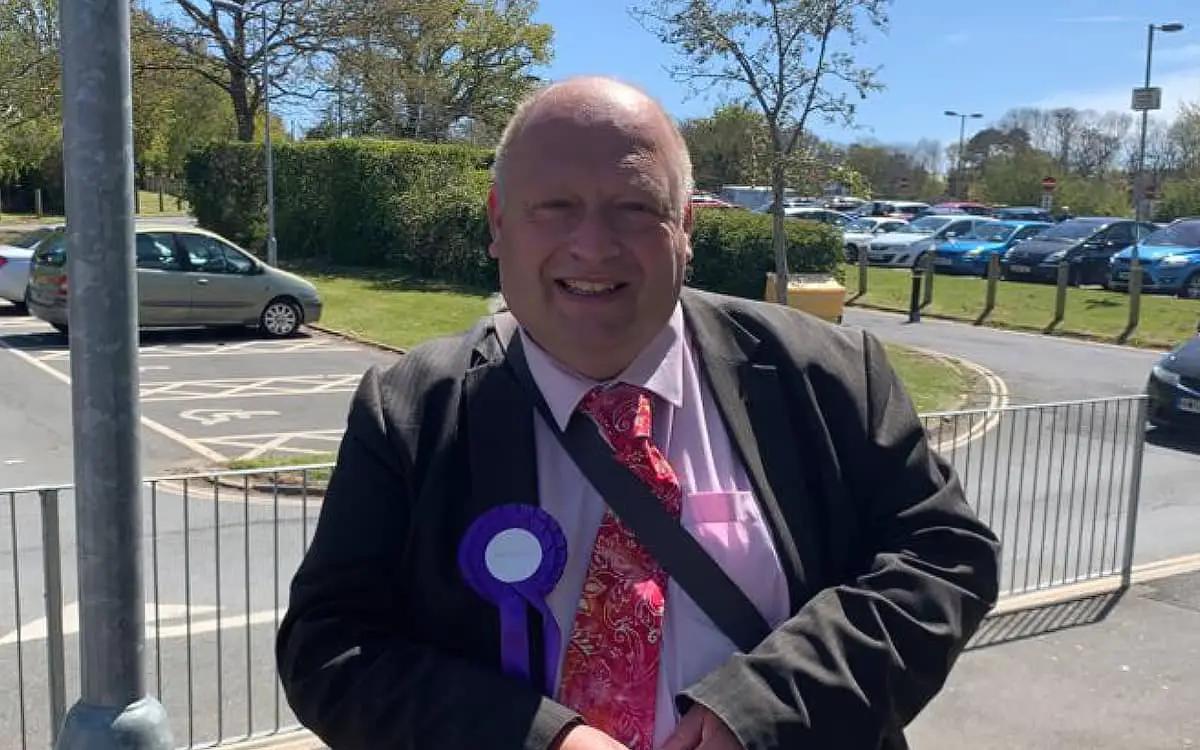The new Island Planning Strategy (IPS) will be a potent weapon for the Isle of Wight Council in the war against unwanted development.
That is the message from the new lead councillor on housing as consultations on the IPS are undertaken.
Cllr Paul Fuller said,
“It gives us the ability to be stronger … we cannot allow what is starting to happen on the Island to happen.”
Fuller: We cannot make any real, firm decisions about future development
Nearly four months into the new Alliance Group administration and settling into his position, Cllr Fuller has taken over as cabinet member for housing and planning and successfully brought forward the IPS for consultation.
He said,
“With no plan, we cannot make any real, firm decisions about future development or how the Island progresses in terms of regeneration in the next 15 years.
“At the moment, there are so many problems, so many difficulties.
“For example, with residents having views on greenfield sites.
“On the other hand, we need to be able to provide housing for people who are in temporary accommodation, hundreds of people across the Island, we need to be able to respond to that.”
Addressing future housing issues
Following consultation in 2018, the latest IPS draft sets out how the council will address housing issues and planning applications in the future.
It will give the council the tools it needs in planning, Cllr Fuller said, otherwise they are dependent on what the government imposes.
He said,
“We have seen quite some contentious applications in the past and we have not had the policy grounds to say ‘this is not acceptable’ and what we want to see rolled out across the Island.
“The IPS will give us an evidence base to say to government ‘look, we are different’, we do have exceptional circumstances here.”
Out of date policies
The current local plan applications are determined by was implemented in 2012, but policies in it have since been deemed as out of date.
In some cases, they have been used against the council as they are partially responsible for the presumption in favour of sustainable development the council now fall under.
Pressure on Gurnard and Northwood
Speaking as councillor for Cowes West and Gurnard, he said with nowhere left to develop in Cowes, it put the pressure on Gurnard and Northwood to provide the housing.
Therefore he may like to see the IPS altered to prevent this.
An important policy to him, being introduced through the IPS, was having hard settlement boundaries which will stop the opportunity for developers to go beyond them.
Fuller: Want to avoid smaller towns and villages being swallowed up
Cllr Fuller said,
“There is a worry that larger areas, like Ryde, could swallow up the smaller towns and villages and we want to keep those identities separate and keep those communities strong.
“I am quite proud of this idea but is not quite there yet.
“When you look at where the housing allocations are, there are some controversial things but we need to know from communities what their thoughts are and if developments are allowed, we need to make sure they are right in the future.
“What we really need is residents to be able to engage with the consultation process and either support the IPS or tell the council where they have got things wrong.”
To read the strategy and find out how to comment, visit the Website.
Comments will be accepted until 5pm, 1st October.
This article is from the BBC’s LDRS (Local Democracy Reporter Service) scheme, which News OnTheWight is part of. Read here to find about more about how that scheme works on the Island. Some alterations and additions may have been made by News OnTheWight. Ed





